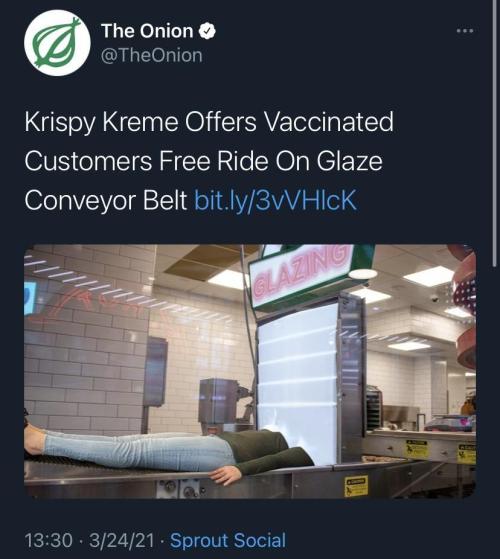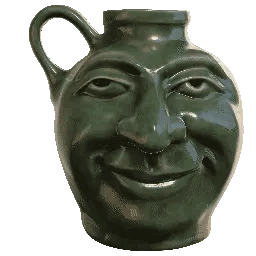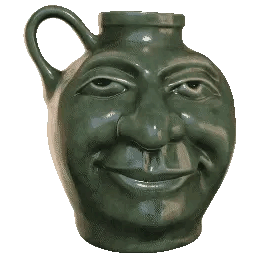Do-so - A Murder In A Trenchcoat

More Posts from Do-so and Others






Art by Alexander Chernobai
Japanese tea bag maker Ocean-Teabag has been making waves by creating little parcels of aroma in the shape of marine animals. Luckily for us, their wide range of tea bags are available at online Japanese novelty retailer Village Vanguard, maker of such fine products as Space Tea and cat-shaped kitchen utensils.



Ocean-Teabag’s earliest designs included beautiful dolphin tea bags filled with blue mallow tea leaves. Steeping them turns your otherwise normal pot of water into a tranquil ocean. Proving to be a hit among tea lovers, Ocean-Teabag expanded their repertoire to many other sea creatures including the sea turtle (butterfly pea jasmine tea)…

the distinctive ocean sunfish (Japanese hojicha — roasted green tea)…

the graceful manta ray (tropical mango tea)…

and even a blood-thirsty shark (blended herb tea).

The newest addition to their robust series of marine creatures is a tea bag shaped like an innocuous sea cucumber. This little parcel is filled with jasmine tea, as well as a smidgen of sea cucumber powder to lend some authenticity. Ocean-Teabag warns that some people who have a sensitive tongue may find it tasting a little fishy.

The company also crafted a deep sea series that will satisfy even the most adventurous of tea drinkers out there. A few such examples are the anglerfish (earl grey tea)…

the creepy giant isopod (Eastern Beauty oolong tea)…

the horseshoe crab (white apricot tea)…

…and lastly the king of them all, the enormous giant oarfish. ( Delicious Assam tea of epic proportions! ) Just like its namesake, it measures a whopping 19 centimeters (7.5 inches). Drinking tea becomes an art when half of your tea bag hangs out of your cup.

While the notion of turning your cup of tea into fish-inhabiting waters is not new, these tea bags will hopefully conjure up images of gentle ocean waves in your mind.

WHERE TO FIND THE TEA









Smug jug moodboard
I remember someone saying "mad scientists in fiction aren't scientists because there's never a control group"
I think if you've created an elixir that turns people into goat men you have sort have gone past the need for a control group. The control group is not going to placebo themselves into goat men. You can probably not run the control group, and safely assume that none of them would have turned into goat men. That said, having a control group for that would make the mad scientist seem extra crazy and be really really funny, especially if he was carefully testing them for goat like features from the dyed water they drank instead of the elixir

Great work Tumblr



I love her so much
"I know we want to see the shirtless men on romance novel covers, but consider this: ~waistcoats~"
(Bernadette Banner, in a video redesigning the clothes on romance novel colors to be more period-accurate)

A new tool lets artists add invisible changes to the pixels in their art before they upload it online so that if it’s scraped into an AI training set, it can cause the resulting model to break in chaotic and unpredictable ways.
The tool, called Nightshade, is intended as a way to fight back against AI companies that use artists’ work to train their models without the creator’s permission. Using it to “poison” this training data could damage future iterations of image-generating AI models, such as DALL-E, Midjourney, and Stable Diffusion, by rendering some of their outputs useless—dogs become cats, cars become cows, and so forth. MIT Technology Review got an exclusive preview of the research, which has been submitted for peer review at computer security conference Usenix.
AI companies such as OpenAI, Meta, Google, and Stability AI are facing a slew of lawsuits from artists who claim that their copyrighted material and personal information was scraped without consent or compensation. Ben Zhao, a professor at the University of Chicago, who led the team that created Nightshade, says the hope is that it will help tip the power balance back from AI companies towards artists, by creating a powerful deterrent against disrespecting artists’ copyright and intellectual property. Meta, Google, Stability AI, and OpenAI did not respond to MIT Technology Review’s request for comment on how they might respond.
Zhao’s team also developed Glaze, a tool that allows artists to “mask” their own personal style to prevent it from being scraped by AI companies. It works in a similar way to Nightshade: by changing the pixels of images in subtle ways that are invisible to the human eye but manipulate machine-learning models to interpret the image as something different from what it actually shows.
Continue reading article here
I miss the days when, no matter how slow your internet was, if you paused any video and let it buffer long enough, you could watch it uninterrupted
-
 bugcatchergirl liked this · 3 weeks ago
bugcatchergirl liked this · 3 weeks ago -
 luvbites liked this · 3 weeks ago
luvbites liked this · 3 weeks ago -
 2wn reblogged this · 3 weeks ago
2wn reblogged this · 3 weeks ago -
 purritt reblogged this · 3 weeks ago
purritt reblogged this · 3 weeks ago -
 cafe-clownere reblogged this · 3 weeks ago
cafe-clownere reblogged this · 3 weeks ago -
 birdwithboots reblogged this · 3 weeks ago
birdwithboots reblogged this · 3 weeks ago -
 pookykun reblogged this · 3 weeks ago
pookykun reblogged this · 3 weeks ago -
 pookykun liked this · 3 weeks ago
pookykun liked this · 3 weeks ago -
 strawberry-lex reblogged this · 3 weeks ago
strawberry-lex reblogged this · 3 weeks ago -
 strawberry-lex liked this · 3 weeks ago
strawberry-lex liked this · 3 weeks ago -
 butterflyangel2002 liked this · 4 weeks ago
butterflyangel2002 liked this · 4 weeks ago -
 xxxsoapcityxxx reblogged this · 4 weeks ago
xxxsoapcityxxx reblogged this · 4 weeks ago -
 shy-of-fluff reblogged this · 4 weeks ago
shy-of-fluff reblogged this · 4 weeks ago -
 grimlove liked this · 4 weeks ago
grimlove liked this · 4 weeks ago -
 yorickish liked this · 4 weeks ago
yorickish liked this · 4 weeks ago -
 thatfrogisbog liked this · 4 weeks ago
thatfrogisbog liked this · 4 weeks ago -
 angelofwhimsy reblogged this · 4 weeks ago
angelofwhimsy reblogged this · 4 weeks ago -
 lonelyworld liked this · 4 weeks ago
lonelyworld liked this · 4 weeks ago -
 ysatis reblogged this · 4 weeks ago
ysatis reblogged this · 4 weeks ago -
 driftveilcity liked this · 4 weeks ago
driftveilcity liked this · 4 weeks ago -
 chocolatemochikitty liked this · 4 weeks ago
chocolatemochikitty liked this · 4 weeks ago -
 hec-chan reblogged this · 4 weeks ago
hec-chan reblogged this · 4 weeks ago -
 arioktant liked this · 4 weeks ago
arioktant liked this · 4 weeks ago -
 unearthlygamer reblogged this · 4 weeks ago
unearthlygamer reblogged this · 4 weeks ago -
 strawberryfight liked this · 4 weeks ago
strawberryfight liked this · 4 weeks ago -
 endlesslyanya liked this · 4 weeks ago
endlesslyanya liked this · 4 weeks ago -
 elfneuroses liked this · 4 weeks ago
elfneuroses liked this · 4 weeks ago -
 sayhiito-winnie liked this · 4 weeks ago
sayhiito-winnie liked this · 4 weeks ago -
 chibiwings reblogged this · 4 weeks ago
chibiwings reblogged this · 4 weeks ago -
 victreebel liked this · 4 weeks ago
victreebel liked this · 4 weeks ago -
 miyuyyr liked this · 4 weeks ago
miyuyyr liked this · 4 weeks ago -
 urmidn1ghts reblogged this · 4 weeks ago
urmidn1ghts reblogged this · 4 weeks ago -
 silverncats liked this · 4 weeks ago
silverncats liked this · 4 weeks ago -
 skittish-maiden liked this · 4 weeks ago
skittish-maiden liked this · 4 weeks ago -
 alola03 reblogged this · 4 weeks ago
alola03 reblogged this · 4 weeks ago -
 featsofdexterity reblogged this · 4 weeks ago
featsofdexterity reblogged this · 4 weeks ago -
 campanellacat liked this · 4 weeks ago
campanellacat liked this · 4 weeks ago -
 malesexualizer reblogged this · 4 weeks ago
malesexualizer reblogged this · 4 weeks ago -
 itznymph liked this · 4 weeks ago
itznymph liked this · 4 weeks ago -
 hona5 liked this · 4 weeks ago
hona5 liked this · 4 weeks ago -
 njoofra reblogged this · 4 weeks ago
njoofra reblogged this · 4 weeks ago -
 scrapbookdiary reblogged this · 4 weeks ago
scrapbookdiary reblogged this · 4 weeks ago -
 ysatis liked this · 4 weeks ago
ysatis liked this · 4 weeks ago -
 sklira reblogged this · 4 weeks ago
sklira reblogged this · 4 weeks ago -
 sklira liked this · 4 weeks ago
sklira liked this · 4 weeks ago -
 girlspecimen liked this · 4 weeks ago
girlspecimen liked this · 4 weeks ago -
 straberypinkpluto reblogged this · 4 weeks ago
straberypinkpluto reblogged this · 4 weeks ago -
 iusedtobeworse liked this · 4 weeks ago
iusedtobeworse liked this · 4 weeks ago -
 pinnocchio3000 reblogged this · 4 weeks ago
pinnocchio3000 reblogged this · 4 weeks ago -
 d1anna liked this · 4 weeks ago
d1anna liked this · 4 weeks ago
